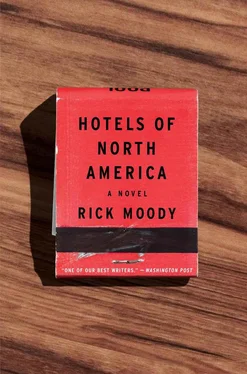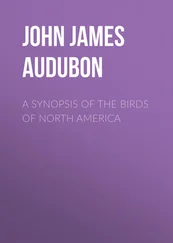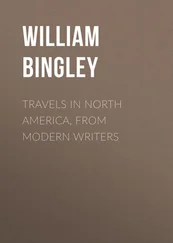It’s funny that I bring up K., because having put so much work into thinking about Reginald Morse, having been nudged into accepting the three-hundred-dollar fee for writing this afterword, and having written the lines above and determined that they were sufficient for this assignment, I visited an art opening one night, not too long ago, in Chelsea. There I met a woman who said her name was Leda, which, you probably know, is the name of a mythological character.
But let me back up for a moment. The curious fact is that at this particular opening, there was no work at all on the gallery walls. The space was entirely empty, and instead of a show, you were given, upon entering, a handout festooned in some kind of gold-leaf material, like a particularly garish wedding invitation, which explained that the artist had not been able, because of the abundant demands of a busy life, to make the work in question. We the audience simply had to imagine the art that might have been there, displayed upon these newly whitewashed surfaces. In the old conceptual-art days, they might have left out for us some art-making material — some crayons and scissors, some egg tempera or oils — and we the audience could have made the work, which the artist could then have sold as a hybrid artifact, a complex collaboration with the audience. But in this instance there was no work at all. We were therefore invited to imagine. Naturally, there was even more chatter than at a conventional art-world event. A great many people stared at the walls, mumbled to themselves, and shushed those who were overly involved with gossiping and drinking the white wine from the plastic stemware. A few sour intellectual types muttered into their personal digital devices. Perhaps they were uploading their reviews online.
In one corner, I snuck between a woman gazing at the wall and the wall itself, in that dance one does, and I felt awkward about my intrusion, exactly as though the wall did have work on it and not just the imaginary projections of concept. The woman laughed as if she knew what I was thinking, and we began talking, and she asked if I was an artist, and when I said that I was actually a writer, she said, Oh, the form that features the least conceptual thinking. She laughed again her slightly forced social laugh, weary and sympathetic and embarrassed all at once, and I didn’t quite know what to make of her comment, and so I said something about the conceptual artist who had hung the blank canvas at which he had looked for a thousand hours. Somehow that analogy took us off on a tangent, conceptual-art pieces since the Fluxus movement, labor and fraudulence teetering in carefully balanced supply, which reminded me of the various novels that deal with this subject, novels of the confidence man, the grifter, the literary serial killer, et al., and that of course caused me to cite the work of Reginald Edward Morse. I had turned up no real traces of Morse, I explained to the woman who had introduced herself as Leda. She asked why I didn’t go search for him in person, and I explained that others had already done so, with no success. It seemed there was no Reginald Edward Morse except the one in the work. She smiled a particularly enigmatic smile, and it was at this moment that I became convinced, abruptly and for no apparent reason at all, that Leda was K. herself. The erstwhile lover of Reginald Morse, the borrower of bird names, the muse and inspiration and co-agitator with Reginald Morse.
I had a sort of uncanny paroxysm in which the hair on my arms stood up for a second, and I shuddered. It was as if I had become the quarry of Reginald Morse, rather than the other way around, as if literature in general, and the online review in particular, always led to an electrical circuit of mystery and failure and repetition. I thought about this as I examined Leda’s shoes, her rather scuffed-up flats (and this is to neglect to describe her face, which was long and sad, just this side of middle-aged, with bright red lipstick and somewhat pale skin, with blue eyes of the luminous slate-colored variety), and then I glanced up and said, You wouldn’t perhaps be a friend of Reginald Morse’s, would you?
Even as I asked, I was aware that the question would sound ridiculous, would sound as though I had lost my handhold on critical distance, and yet I went ahead and asked anyway, with the result that Leda became flustered and tried to excuse herself. With all the gentleness, even tenderness, that I could muster, I entreated, Listen, I know, I know, this sounds crazy, and it probably has to do with how frustrated I already am because of this project. Forgive me. I didn’t mean to make you uncomfortable. I’m the one who should be uncomfortable . I touched her briefly, on the shoulder. She was wearing an off-white wool sweater that looked like it had been knitted in a Gaelic-speaking landscape. The touch was not intimate; it was a touch that was meant to signify earnestness. Or perhaps it meant that I understood our exchange was at an end. Which it was.
For a second, though, I had understood K., had seen into her and into her unlikely loyalty to Reginald Edward Morse. Maybe she was the portrait I would have painted on the blank walls of the gallery in Chelsea, or maybe she was the portrait that Morse would have painted, creating her likeness in a series of zeros and ones scratched with pen and ink. Whatever that blank space was, in that gallery, it was the space where imagination went, not the thing itself, in reality, but the subjective idea of the thing.
And that’s how I feel about the writings of Reginald Edward Morse now, that they tell us more about the future than they tell us about hotels. I don’t know if Morse’s work is true, or genuine, or even if it’s good, but I know that his work is a sign of the times, and that his laughter and his laments compose a novel in fragments in which the traces of a human pulsation are still audible at this distance, despite his silence. Maybe he’s holed up in a motel by the interstate now, laughing at the bad customer service, like the jetliner that has gone radio silent but is still pinging from a distant satellite on its way to the bottom of the sea. Wherever he is, this future he suggests is scrawled in tragicomedy, and when you lay your hands on it, however accidentally, you feel the shadow of what’s yet to come.
— New York, May 2015












